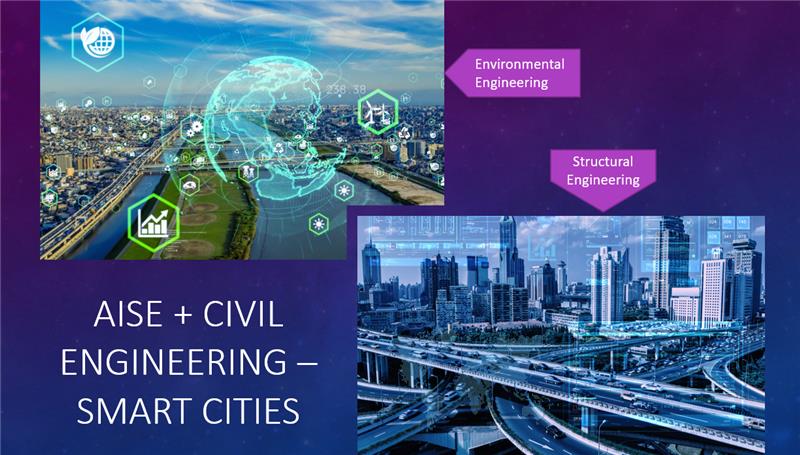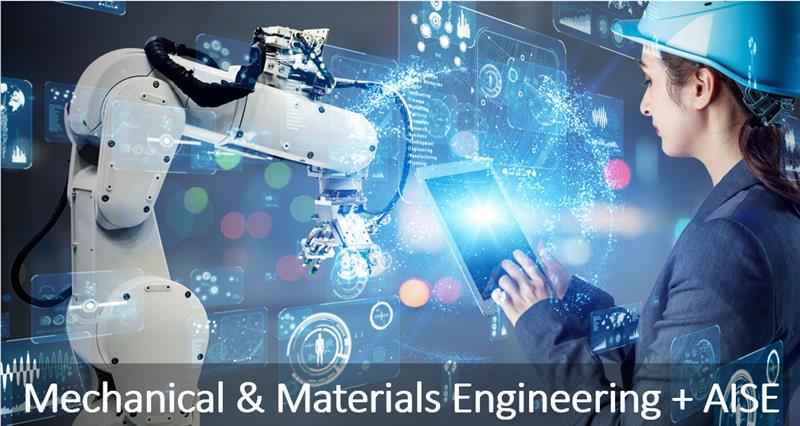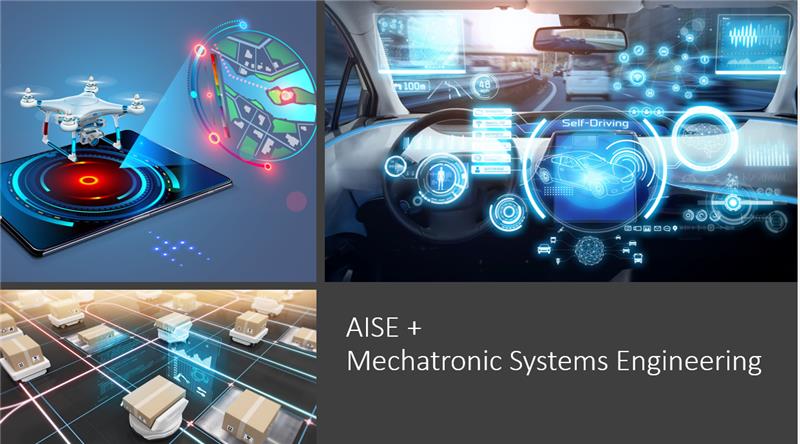Undergraduate Studies
Contact
Department of Electrical and Computer Engineering
Thompson Engineering Building
Room 279
London, ON N6A 5B9
Tel: 519-661-2111 (81257)
ecegrad@uwo.ca
Artificial Intelligence Systems Engineering

Program Overview
Western Engineering’s Artificial Intelligence Systems Engineering (AISE) program prepares engineers with a strong foundation in machine learning, data engineering, and AI model design, supported by core computing and software development skills. Through project-based courses and discipline-focused case studies, students develop the ability to apply AI within one selected engineering discipline—Chemical, Civil, Electrical, Mechanical, or Mechatronic Systems Engineering—building applied expertise to address emerging engineering challenges at the intersection of engineering systems and intelligent technologies.
What makes AISE distinctive is that it is not simply “an engineering degree with a few AI courses.” AISE is built around applying AI in real engineered systems, where constraints such as safety, reliability, validation, and accountability matter. Students learn how to design and evaluate AI models, understand their limitations, and deploy them responsibly in professional engineering contexts.
By the end of the program, graduates can connect the full pipeline—from data to models to implementation—while making sound engineering decisions about when AI is appropriate, how it should be tested, and how it can be integrated into real-world solutions. This combination of AI foundations and discipline-based engineering practice supports careers where engineering judgement and modern AI methods must work together.
What You’ll Learn
AISE is built on a simple idea: AI is a powerful tool, but it delivers real value only when it is grounded in strong engineering understanding. Students therefore develop their core expertise within Western University’s engineering curriculum by building depth in one selected discipline—Chemical, Civil, Electrical, Mechanical, or Mechatronic Systems Engineering—so they can understand the real constraints, trade-offs, and performance requirements that define engineering success.
With that engineering foundation in place, students learn how to apply AI across the lifecycle of an AI-enabled solution. They move from defining an engineering problem and working with appropriate data, to building and validating models, and then integrating those models into usable systems. Throughout the program, emphasis is placed on practical workflows used in industry, including iterative development, clear documentation, and collaborative software practices.
Students also develop the judgement needed to interpret model performance in context. They learn to evaluate limitations, uncertainty, and risk, and to communicate results in ways that support engineering decision-making. The goal is not only to build models, but to understand when AI is a good fit, what it can and cannot reliably predict, and how to deploy it safely and responsibly. By combining discipline-based engineering knowledge with modern AI capability, students are positioned to create solutions where the combined impact is greater than either component alone.
Why AI in Engineering
AI is increasingly embedded in engineered systems across sectors, but the highest-impact roles require more than knowing algorithms—they require engineers who can connect data, models, and systems to real-world requirements. As industry adoption grows, organizations need professionals who can evaluate whether AI is appropriate for a given engineering problem, validate performance under realistic conditions, and deploy solutions that are reliable, accountable, and fit for purpose.
AISE responds to that need by combining an engineering discipline foundation with applied AI training, preparing graduates to work where engineering systems and intelligent technologies converge.
Career opportunities
- Machine Learning Engineer
- Robotics Engineer
- Software Engineer
- Data Scientist
- Business Intelligence Officer
- And many more...
How to Apply
After completing Western Engineering's Common First Year , you can enroll in the Artificial Intelligence Systems Engineering Program by choosing one of the following options:






